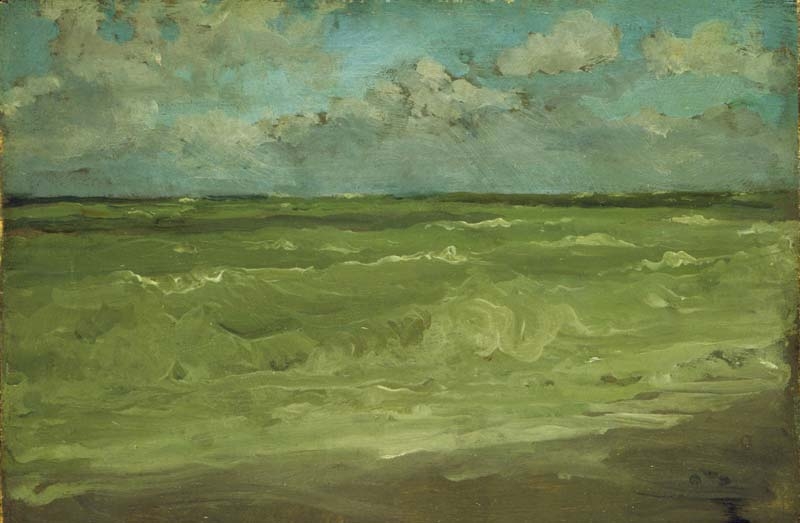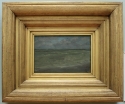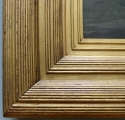Home > Catalogue > Browse > Green and Silver: The Great Sea << >>
Technique
It was painted robustly on an unprimed panel, with a partial, mid-brown imprimatura thinly applied with uneven diagonal brushstrokes. This is very similar in tone to the painted brown shore and is used as a dark tone in the clouds. The paint has megilp-type medium modifier in the sea only. The sea was painted with a tiny brush in the background and a broader (5 mm) brush in the foreground. The brushwork on the sky is soft and fluffy. Both the rolling waves and the lower clouds were reworked. 1
Although there are touches of blue in the sky the panel is dominated by shades of grey, mixed with brown on the beach, and green (as noted in the title) for the sea.
The Sea, Pourville, No. 1 [YMSM 516] and Green and Silver: The Great Sea [YMSM 518] are similar in colour, composition and technique.
Conservation History
Dr Joyce H. Townsend examined the frame with assistance from Robert Armstrong of the Hunterian. She describes it as follows:
'The support is a panel with auxiliary backing panel of mahogany-type hardwood with a steep bevel on all four sides at the reverse, giving a maximum combined thickness of ca 12 mm instead of the 6-8 mm of most other framing devices. The [backing panel] .. looks more early 20th-cenury in design than others: this has very narrow battens ca 3 mm wide and, in plane with the picture, fastened with pins (one near the end of each strip) as well as adhesive, and arranged so that the end of one overlaps the next, to give offset squared, not mitred, corners. Three nails apparently go into the panel from the front, placed before painting. ...The varnish is glossy, very yellowed, and presumably not original. It was applied after the right batten went on, since some has piled up against the batten.' 2
Frame
Grau-style frame, dating from the 1890s or early 1900s. 3
Last updated: 13th November 2020 by Margaret








